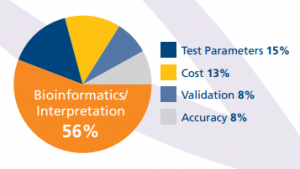You can view the original press release on our official launch at PRWeb.com. Thanks to the folks at RNA-Seq Blog for quickly picking up the story.
Genohub announced the launch of their online market for next generation sequencing services today.
Austin, TX (PRWEB) August 16, 2013
Genohub.com announced the launch of their online market for next generation sequencing services today. The online service, is positioned to completely change the way high throughput sequencing services are ordered, accelerating genomic research by improving access to sequencing services. Genohub’s intelligent sequencing matching engine instantly matches researchers with service providers based on specific project criteria. Genohub facilitates the management of sequencing projects throughout the sequencing lifecycle from selecting orderable sequencing packages, to communication, payments and delivery of data.
For Researchers
Genohub’s online service transforms the way researchers go about ordering next generation sequencing (NGS) and reinforces the critical researcher-provider communication cycle involved in every project. Genohub’s model eliminates the need for researchers to call multiple service providers to compare service details and prices. Researchers use the smart NGS matching engine to gain immediate access to up-to-date service listings from reputable providers. The transparent pricing model, with exact service prices, reduces the time needed to compare services and makes it significantly faster, more informed and more accurate than manually ordering by email or phone. Researchers using the service are also able to take advantage of one-time deals and other offers not normally available through a provider’s website or pricing sheet. Clear maximum turnaround times for each service reduces the unpredictability associated with project completion dates. Researchers using the service are able to track the status of their orders, upload data or project specific information and post messages to providers performing the work.
Genohub’s shopping interface is designed to accommodate both researchers with prior experience with the latest sequencing technology, as well as the increasing number of life science researchers who are not necessarily familiar with the latest sequencer specs or perhaps have no prior sequencing experience at all. Experienced users can search by selecting specific instruments and run types while researchers new to sequencing can shop for services by their project requirements, e.g., read number and coverage. Researchers who need help selecting the right sequencing service can also take advantage of free consultation by Genohub’s PhD trained staff.
For Service Providers
Genohub has also invested significantly on promoting NGS service providers by allowing them to advertise services and extend their reach to places where they would normally not receive orders. Providers sign up and list their services in a structured format allowing Genohub’s matching engine to automatically offer services to customers based on their experimental needs. The online service facilitates customer communication via a centralized messaging interface, which allows providers to request data, convey unforeseen handling or quality issues and relay project status to the researcher.
Genohub also automatically generates accurate quotes based on the pricing information that has to be entered by the provider only once. This significantly reduces the amount of time providers would normally have to spend on creating and communicating quotes
“While high-throughput sequencing holds enormous potential for unlocking new discoveries, the high cost and complexity of sequencing projects necessitate a professional marketplace like Genohub to improve access and facilitate collaboration between researchers and service providers across universities, companies, as well as other private and public research organizations around the globe,” said Pouya Razavi, Genohub’s CEO and co-founder.
Media Contact:
Estevan McCalley, Head of Customer Development
Genohub
512-436-0111
info@genohub.com
https://genohub.com/

